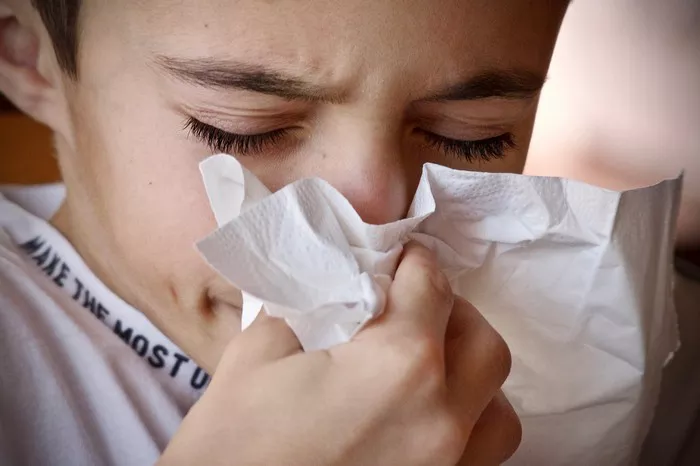Allergic rhinitis, also known as hay fever, is a common condition that affects millions of people worldwide. It is characterized by symptoms such as sneezing, runny nose, and itchy eyes, and is caused by an allergic reaction to substances such as pollen, dust mites, or animal dander. In this article, we will explore what causes allergic rhinitis, the risk factors, and the treatment options available.
What is Allergic Rhinitis?
Allergic rhinitis is an allergic reaction to substances such as pollen, dust mites, or animal dander. When these substances enter the body, they trigger an immune response that causes inflammation in the lining of the nose and eyes. This inflammation leads to symptoms such as sneezing, runny nose, and itchy eyes.
Causes of Allergic Rhinitis
Allergic rhinitis is caused by an allergic reaction to substances such as pollen, dust mites, or animal dander. When these substances enter the body, they trigger an immune response that causes inflammation in the lining of the nose and eyes. The exact cause of allergic rhinitis is not fully understood, but it is believed to be a combination of genetic and environmental factors.
Risk Factors for Allergic Rhinitis
There are several risk factors for allergic rhinitis, including:
Family History: If you have a family history of allergies, you are more likely to develop allergic rhinitis.
Environmental Factors: Exposure to allergens such as pollen, dust mites, or animal dander can increase your risk of developing allergic rhinitis.
Age: Allergic rhinitis can occur at any age, but it is more common in children and young adults.
Gender: Allergic rhinitis is more common in males than females.
Other Allergies: If you have other allergies, such as food allergies or asthma, you are more likely to develop allergic rhinitis.
Symptoms of Allergic Rhinitis
The symptoms of allergic rhinitis can vary from person to person, but they typically include:
Sneezing
Runny nose
Itchy nose, eyes, and throat
Congestion
Watery eyes
Postnasal drip
Fatigue
Diagnosis of Allergic Rhinitis
Allergic rhinitis can be diagnosed through a combination of medical history, physical examination, and allergy testing. Your doctor will ask about your symptoms and medical history, and may perform a physical examination to look for signs of inflammation in the nose and eyes. Allergy testing, such as skin prick testing or blood tests, can also be used to identify specific allergens that may be causing your symptoms.
Treatment of Allergic Rhinitis
The treatment of allergic rhinitis typically involves a combination of medications and lifestyle changes. Medications such as antihistamines, decongestants, and nasal corticosteroids can help to relieve symptoms and reduce inflammation in the nose and eyes. Lifestyle changes, such as avoiding allergens and using air filters, can also help to reduce symptoms.
Prevention of Allergic Rhinitis
While allergic rhinitis cannot be prevented, there are several steps you can take to reduce your risk of developing symptoms. These include:
Avoiding Allergens: If you know that you are allergic to certain substances, such as pollen or dust mites, try to avoid them as much as possible.
Using Air Filters: Air filters can help to remove allergens from the air, reducing your exposure to them.
Keeping Your Home Clean: Regular cleaning can help to reduce the amount of allergens in your home.
Taking Medications: If you have a history of allergies, taking medications such as antihistamines or nasal corticosteroids can help to prevent symptoms.
Conclusion
Allergic rhinitis is a common condition that is caused by an allergic reaction to substances such as pollen, dust mites, or animal dander. While the exact cause is not fully understood, it is believed to be a combination of genetic and environmental factors. Symptoms include sneezing, runny nose, and itchy eyes, and can be treated with medications and lifestyle changes. If you suspect that you may have allergic rhinitis, be sure to consult with your doctor for an accurate diagnosis and treatment plan. With proper management, you can reduce your symptoms and improve your quality of life.
[inline_related_posts title=”You Might Be Interested In” title_align=”left” style=”list” number=”6″ align=”none” ids=”4013,4009,4007″ by=”categories” orderby=”rand” order=”DESC” hide_thumb=”no” thumb_right=”no” views=”no” date=”yes” grid_columns=”2″ post_type=”” tax=””]
































